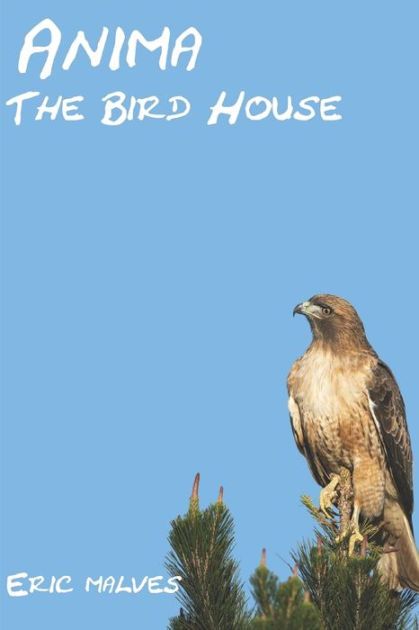Review by Sofox
Anima: The Bird House takes place in a world just like our own with one difference: There is a condition that will slowly and irreversibly transform you into an animal. The condition is called Anima, and it's at the "scientists are just barely beginning to understand" stage. No one seems to know what determines the animal species or how someone even gets it, but the end result is regular humans suddenly find themselves gradually gaining animalistic features (tails, claws, fur, etc) that become more and more prominent before finally making the final transformation to the full animal. This can take months or much longer and people in this stage are called "hybrids".
One such person is Lyall Williams, an average Computer Science student who, after an mini transformation during a lecture, discovers he is gradually turning into a red tailed hawk. He obviously finds this incredibly daunting as he doesn't have a choice over this, the full and final transformation is inevitable at some point in the future, and he doesn't know whether he'll still be "him" after the transformation has complete.
This is actually one point of the worldbuilding I didn't quite jive with. Surely scientists run a series of behavioural experiments on transformed people to see if they are still sapient? If they still have memories of their previous lives and are still "them". However, such answers are not available to the characters in this story. There's a legitimate fear that once you're transformed, you're "just" an animal now and whoever you were ceases to be. A frighting prospects since it is essentially an identity death.
In other words, Anima for many feels like a terminal diagnosis. People's plans for the future are destroyed and replaced by an upcoming inevitability that's hard to wrap your head around. On top of that, elements of degenerative diseases seep in as transformations often interfere with human functions, giving you paws instead of hands for instance or making it hard to speak. Hybrids suddenly have a hard time living in a world that's built for humans.
It's honestly a surprisingly bleak take on transformation and I applaud the author for fully committing to it. So often transformation is used as a superpower, wish fulfilment or plot contrivance. This is a far more grounded take that really dives into a lot of the consequences of this premise.
Another huge compliment to the author: there's no big external element being thrown in here ("save the world", "You're a special Hybrid that suddenly everyone wants", "Hybrid being used for top secret government experiments", etc.), it's just a bunch of people trying to deal with the hand they've been dealt with, leaning on each other for support but ultimately making their own decisions over their life. For all the books I've read, I'm not sure I've ever read a story quite like this. Even though we kinda know what will happen to Lyall, we still want to know what it'll be like and how he'll get there.
And it's written pretty engagingly. Especially at the start, there's a lot going on. There's a lot of details and the story does a good job of covering all the little things that are harder to do with transformed body parts, such as opening doorknobs with wings, how chairs with backs interfere with tail feathers or the way hawk eyes make you practically blind at night. It's really engaging seeing how Lyall tries to meet these challenges and his subtle growth over time, showing he's gradually transforming in more ways than one.
There are sentences where the wrong word or name is used, requiring a quick reread and mental substitution ("plans isle" being most funny example). Sometimes more could have been done to show the connection between Lyall and his housemates; they weren't as strongly described as they could have been, although I did really like the story of how one of them had to quit their job because prospective clients wouldn't take them seriously. The book dragged, perhaps, after its initial burst but before it started gathering steam towards the end.
At the start the prose was a bit awkwardly put, with even emotive things being described a bit too functionally. I put part of this down to assuming that Lyall was somewhat autistic - I swear for more reasons than just that he was studying Computer Science. As the book continued I noticed this less, so I assume it was part me getting more used to the writing and also the writing itself getting smoother and more confident.
Overall, I do love the thrust of the book. It's a story of change, identity, fear of the unknown, and finding strength in numbers. Seeing Lyall on his journey is encouraging, as he faces challenges, engages with others who are going through their own, and receives support and encouragement in return. The premise seems dark, but I think that's what makes Lyall's journey through the darkness all the more uplifting. We may journey with others, but ultimately we take the final step ourselves. Nothing is certain in life except change.
